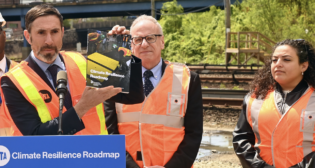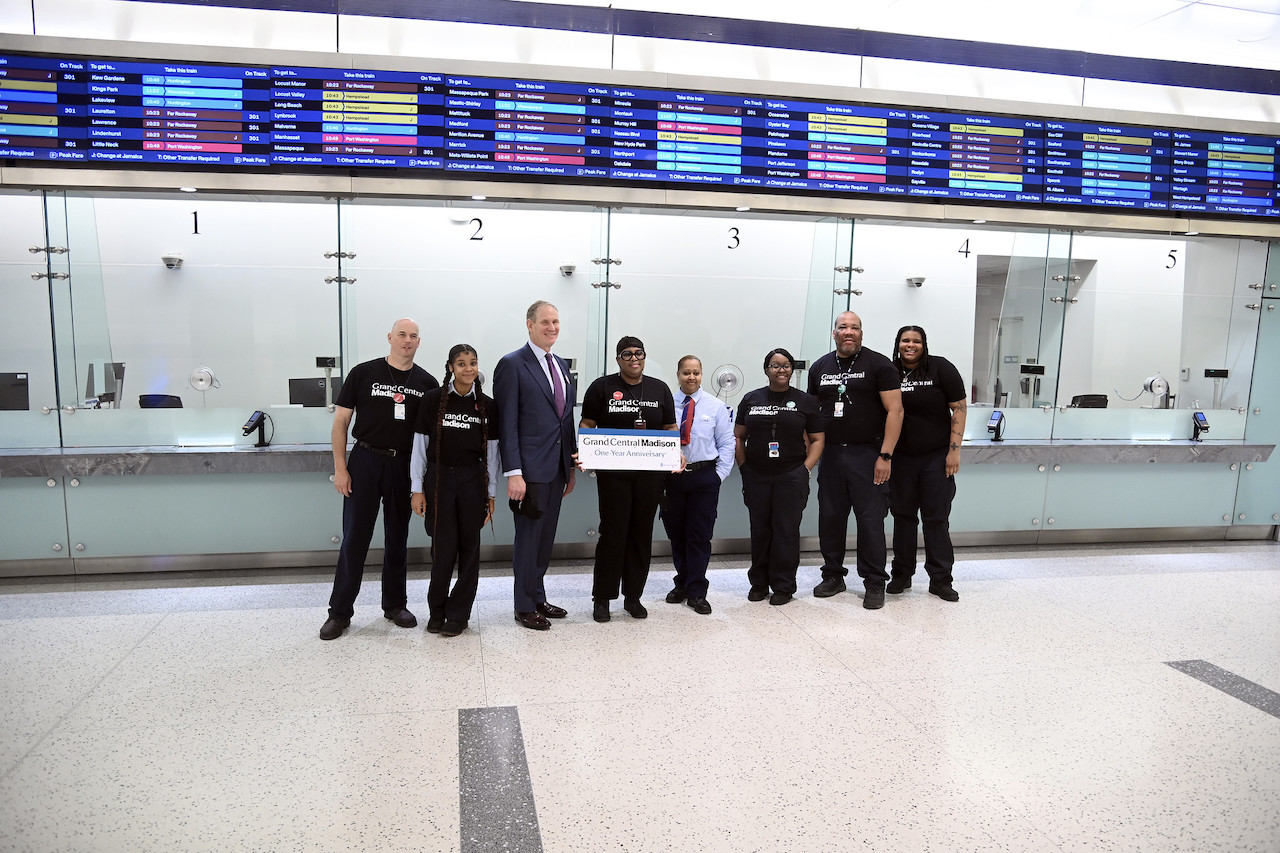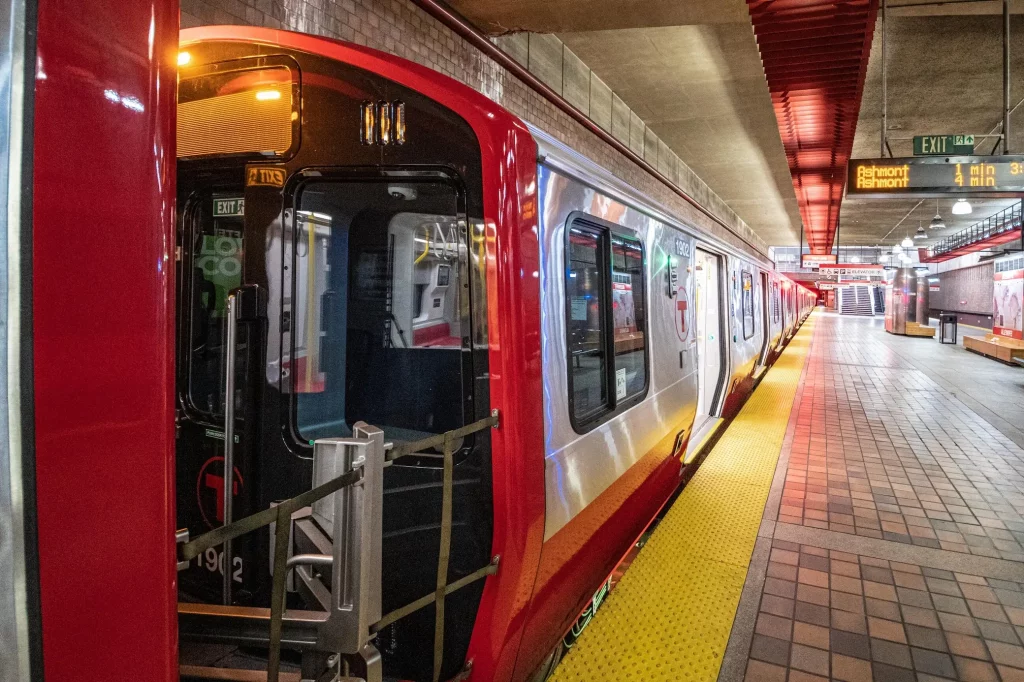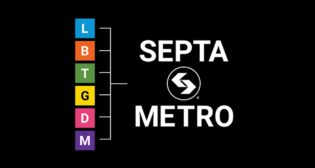
Transit Briefs: NYMTA, Metrolinx, MBTA, MTC/BART
Written by Carolina Worrell, Senior Editor
NYMTA photo
The New York Metropolitan Transportation Authority (MTA) celebrates the upcoming one-year anniversary of the agency’s opening of Grand Central Madison. Also, Metrolinx partners with AccessNow to provide detailed accessibility information; the Massachusetts Bay Transportation Authority (MBTA) begins running a second set of new Red Line train cars; and Phase II of the Clipper® BayPass Program, jointly managed by the Metropolitan Transportation Commission (MTC) and Bay Area Rapid Transit (BART), is now under way.
NYMTA
Officials from the MTA, along with New York Gov. Kathy Hochul, on Jan. 23 celebrated the upcoming one-year anniversary of the agency’s opening of Grand Central Madison, which introduced new commuting opportunities on the Long Island Rail Road (LIRR) and “enhanced New York’s regional connectivity.”
The terminal’s doors were officially opened to the public for the first time on Thursday, Jan. 25, 2023, with train service operating between Jamaica Station and the terminal. Full-service schedules, introducing a 41% systemwide service increase were implemented on Feb. 27. Since opening, MTA says the terminal has been the origin or destination of 17.1 million trips and currently 289 trains operate daily during the week. According to the agency, the percentage of ridership between Grand Central Madison and Penn Station continues to steadily grow to the projected split, reaching a rush hour 60-40% percent split on Jan.19, with 34,117 customers traveling to Penn Station and 22,351 traveling to Grand Central Madison.
Since implementation of full service in February, MTA says LIRR sold 44,573 Combo Tickets in 2023 and Metro-North sold 36,871, for a combined total of 81,444 tickets, “indicating growing familiarity and use of interregional travel via mass transit.” The discounted City Ticket for travel within New York City was expanded to peak hours in July 2023, and 1.2 million have been sold to/from Grand Central Madison since it opened.
“It’s worth celebrating how Grand Central Madison has shortened commutes for millions and enabled a dramatic 41% LIRR service increase, including first-time robust reverse commuting options that have connected City residents to jobs on the island and allowed Long Island businesses to recruit talent from the entire region,” said MTA Chair and CEO Janno Lieber. “We are grateful to have had the unwavering support of Governor Hochul, who recognized Grand Central Madison’s benefits from Day One of her administration.”
Metrolinx
Metrolinx recently announced that it is partnering with AccessNow, an app developed by individuals with disabilities that shares up-to-date accessibility information on public locations.
Metrolinx now provides validated accessibility information on GO Transit and UP Express stations listed on the AccessNow app, so users know what to expect when planning a trip.
AccessNow’s digital map allows transit riders to search for stations with specific accessibility features and discover accessible places nearby. The app is free to download in the Apple App Store or Google Play Store.
Metrolinx says it is “working to reduce barriers on transit, making it safer, easier and more convenient to travel throughout the region.”
MBTA
MBTA has started running a second set of new Red Line cars earlier this month—three years after the first CRRC (China Railway Rolling Stock Corp.)-manufactured Red Line train hit the tracks in December 2020, according to a StreetsblogMass report.
According to the report, MBTA spokesperson Joe Pesaturo confirmed that “two new trains have been running together on the Red Line periodically since the start of this month.”

To date, CRRC has now delivered 106 new Orange Line cars and 16 new Red Line cars, according to MBTA spokesperson Joe Pesaturo. All of the remaining 46 Orange Line cars, plus 28 new Red Line cars, are currently in production at the Chinese state-owned manufacturer’s Springfield factory, according to the StreetsblogMass report.
At the Jan. 26, 2023, MBTA board meeting, acting MBTA General Manager Jeff Gonneville informed board members that “we have 78 (Orange Line) cars that have been delivered to Wellington and 12 (Red Line) cars that have been delivered to Cabot… That number hasn’t changed in 7 months.”
According to MBTA’s original contract with CRRC, “all 152 new Orange Line train cars were supposed to have been delivered to the T by January 2022, and all 252 new Red Line cars were supposed to have been finished by September 2023.”
MTC/BART
MTC announced Jan. 23 that it has finalized agreements this month with the Alameda Transportation Management Association (Alameda TMA) and the City of Menlo Park to provide up to a combined 1,900 people with passes for unlimited free travel for one year on any of 24 Bay Area transit agencies. The agreements with the two entities are part of Phase II of the Clipper® BayPass program, which is jointly managed by MTC and BART.
The Alameda TMA is a non-profit created to resolve transportation challenges facing people who live and work in Alameda by connecting them to a network of “sustainable, affordable, convenient and active modes of transportation across the Bay Area.” More than 1,700 total participants from more than two dozen member organizations are eligible to participate in Clipper BayPass.
The organization serves businesses and housing properties in Alameda Northern Waterfront, Alameda Point and Alameda Landing. Business organizations include light manufacturing companies, breweries/distilleries, and others ranging from small companies with fewer than 10 employees to larger ones with nearly 200 employees. Its housing properties range in size from 50 to 200 units.
Through Alameda TMA and its broad membership pool, MTC says it is is able to provide Clipper BayPass to smaller businesses and housing properties that otherwise would not have been eligible for an institutional transit pass.
The City of Menlo Park will offer Clipper BayPass to approximately 200 employees. The City is already an existing customer of the Caltrain GoPass, and employees are now eligible for a Clipper BayPass upgrade.
MTC and BART say they expect to complete similar agreements with other employers and communities in the months ahead. The Clipper BayPass will be made available to as many as 20,000 individuals at up to 10 different companies, institutions or public agencies during the pilot program’s second phase. Employers who wish to participate can get more information and complete an interest form here. The University of California, San Francisco (UCSF) last month become the first employer to join Phase II of the Clipper BayPass program.
In August 2022, MTC teamed with BART and other transit agencies to launch Phase I of the Clipper BayPass pilot. The purpose of the program, they say, is to study the impact of a single pass that can be used for unlimited access to all Bay Area bus, rail and ferry services, with the exception of San Francisco’s Muni cable cars. Clipper BayPass to date has been made available to 50,000 people, including residents of several affordable housing complexes managed by MidPen Housing, students at Santa Rosa Junior College and randomly selected students at San Francisco State University, San Jose State University and the University of California’s Berkeley campus.
According to MTC, Clipper BayPass participants used their passes for more than a combined two million transit trips in the first year of the pilot. Usage data indicate these customers take some 40% more transit trips than their nonparticipating peers and transfer between systems 74% more often.
Fare coordination and integration is a “cornerstone” of the Bay Area Transit Transformation Action Plan adopted by MTC in 2021, the Commission said. The Survive & Thrive roadmap released in 2023 by MTC, transit agencies, and business and policy advocacy groups identifies Clipper BayPass as a key strategy for retaining and growing ridership. Transit agencies later in 2024 will expand fare integration with the launch of a pilot program for no-cost and reduced-cost transfers between agencies.
Pilot program participants use Clipper BayPass for unlimited travel on:
- BART
- SFMTA (Muni)
- AC Transit
- VTA
- Caltrain
- SamTrans
- Golden Gate Transit
- Golden Gate Ferry
- San Francisco Bay Ferry
- County Connection
- Dumbarton Express
- FAST
- Marin Transit
- Petaluma Transit
- Santa Rosa CityBus
- SMART
- Soltrans
- Sonoma County Transit
- Tri Delta Transit
- Union City Transit
- Vacaville City Coach
- VINE
- WestCAT
- Wheels
Aside from allowing travel at no charge, MTC says the Clipper BayPass functions like any other Clipper card. Participants use their Clipper cards—either traditional plastic cards or Clipper cards on their smartphones or Apple Watch—to tag on (or off) at faregates, on buses, on rail platforms or at ferry ramps. The Clipper BayPass may not be shared with family or friends; it may be used only by participants selected for the pilot program.
MTC is the transportation planning, financing and coordinating agency for the nine-county San Francisco Bay Area. The Commission operates the Clipper transit-fare payment system on behalf of the region’s transit agencies. MTC’s YouTube channel features a video with more information about Phase I of the Clipper BayPass pilot program.



